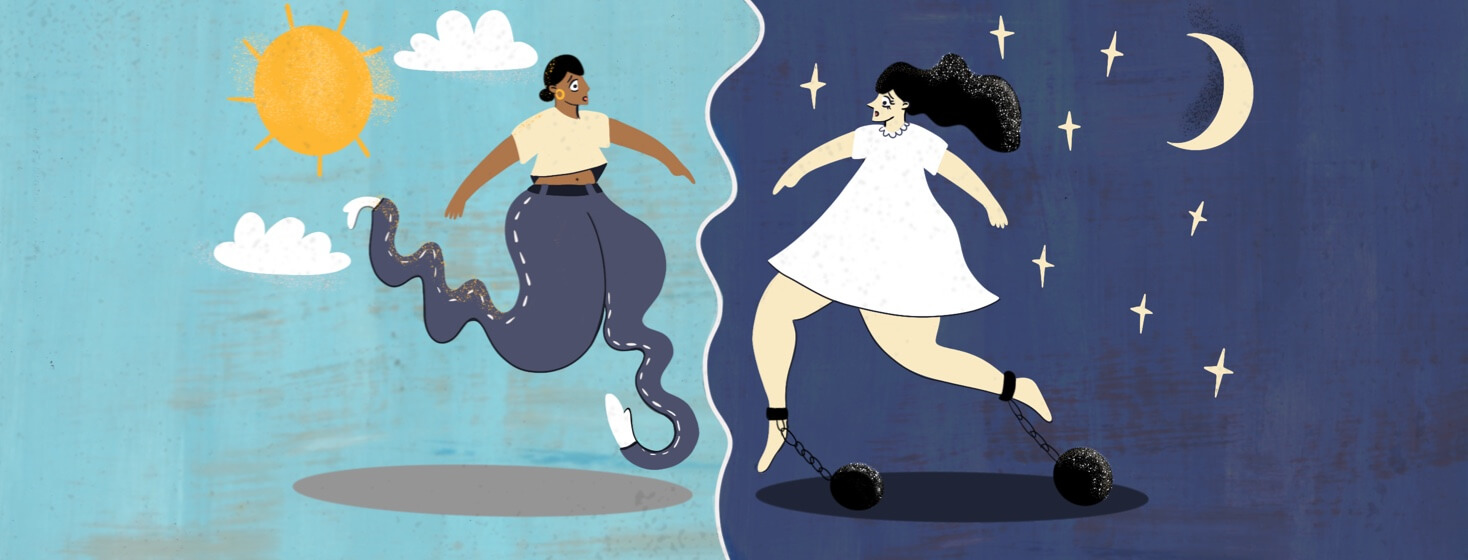This Isn’t Your Friend’s Restless Legs
One of my best friends was diagnosed with restless legs syndrome (RLS) before me.
I didn’t know. She never mentioned it. It still surprises me, because she had extreme issues that made doing things like viewing theater performances difficult. We went to a lot of theater performances together.
I’m very open about my health. After almost 40 years of working in the insurance industry, I have seen how people suffer when we aren't.
Talking openly about health conditions helps
For example, I was once working at a health fair where breast cancer education was our theme. I talked with numerous women who didn’t have a clue about breast self-examination or had put off getting a mammogram because they were scared. Men had no idea they, too, could get breast cancer.
Being able to talk about these things helped. I’ll never forget one woman who broke down in tears as we talked, because she thought she had a lump and was scared to get a mammogram. She went and made an appointment after we talked, and even after taking that one step, she seemed empowered.
My friend's RLS is different
But back to my friend and the restless legs. When I was diagnosed and put on medication, I mentioned it. My friend said, “I have restless legs, too, and that’s the medication I am on. It is fantastic.”
I was hopeful. But our restless legs are different, even down to the symptoms. I usually only have issues at night, and I barely move in my sleep. Instead, it builds up inside, the stress of muscles unable to fire. That deep-set stress is what would keep me awake.
My friend’s RLS is more about movement. As I mentioned before, hers happens on some level 24/7 when she is not on medication.
Same medication, different experiences
I began taking that medication. It was not my solution. It was bad for my body. I slept less than I had before (which was already little to no) and got nauseous. I felt sick all the time. I tried talking to my doctor, and he said to give it more time. I gave it a few more days, and then I stopped. My doctor offered no more solutions, and I wasn’t educated enough to suggest others. I went back to my regimen of sleeping pills that allowed me to get a bit of sleep and had no other side effects.
It was OK, but not ideal. I still had many sleepless nights. It was years before I found a treatment that worked for me — an amount of time compounded by me not advocating for myself.
My friend is still on the same medication today, and it still works for her with no unpleasant side effects.
It's good to share our experiences with each other
When we have the same diagnosis as someone else, it’s difficult to realize our restless legs and our responses to treatment may be very different. It’s a condition that we know likely has different origins, and each of our bodies can respond differently to the same treatment.
It’s good to share with each other and others about our condition and the treatment that works for us. In fact, many people are undiagnosed because they have been unable to articulate the issue to their provider, or they think it is something they must live with.
Sharing your story might help someone else
So share your story! But always remember that we are all different. What works for me may not work for you. My symptoms may not be your symptoms. As we share, our experience just may help someone else learn about the condition.
I didn’t believe I had restless legs syndrome because I didn’t move at night. I’d only heard stories about those who did. When my friend knew I had issues sleeping, she never said, “Me, too! I have restless legs syndrome.” Had she known more, known it can look different in different people, maybe she would have.
Let your friends know you have restless legs. Oh, you don’t have to be a bore and talk about it non-stop, but sprinkle the words around here and there. If they have trouble sleeping, there might be a possible diagnosis they hadn't thought of. No, their condition may not have the same label as yours, but that conversation could open up a dialogue with their provider that may take them to a solution that works for them.
That’s what we want for everyone. Good sleep and restful days.

Join the conversation